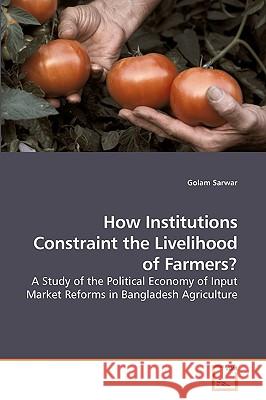How Institutions Constraint the Livelihood of Farmers? » książka
How Institutions Constraint the Livelihood of Farmers?
ISBN-13: 9783639209747 / Angielski / Miękka / 2009 / 76 str.
Institutions, both formal and informal, are the rules of the game that shape the opportunities and constraints for individuals or groups active under certain socio-politico-economic settings. Changes of economic institutions are frequent as globalization advances, particularly the reform initiatives under SAP by World Bank and IMF. Bangladesh agriculture is not an exception. Reforms were sweeping and new market-based economic rules of the game replaced the old ones. The study explores the farmers opportunities and challenges shaped by the new institutions while comparing the post-reform institutions with the pre-reform ones plus with the stylized market based institutions. The study reveals that the post-reform input institutions have both positive and negative impacts on the livelihoods of the farmers. Rural power structure and the patterns of farmers involvements into the input markets often obstructing the small farmers in appropriating the benefits from reform measures, and thus these reforms are disproportionately benefiting a certain class in rural Bangladesh. The book would be useful for the students and researchers interested in agriculture, institutions and livelihoods.











